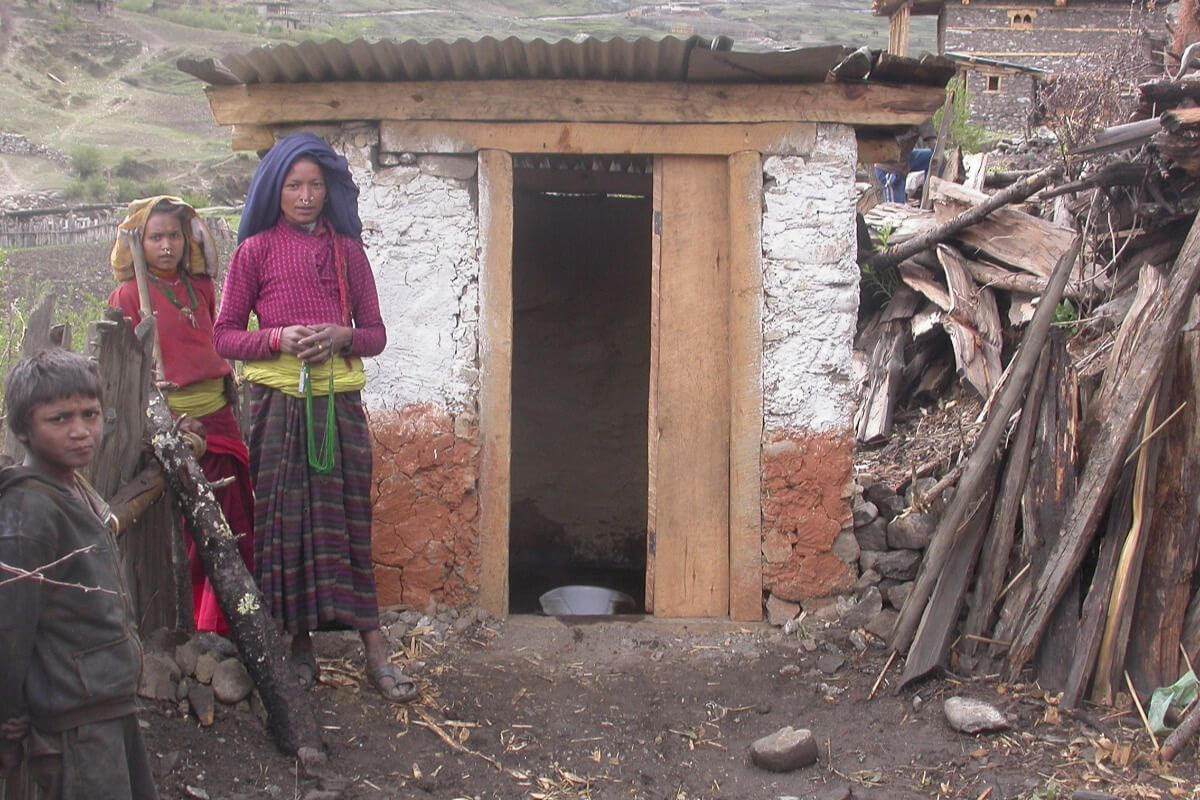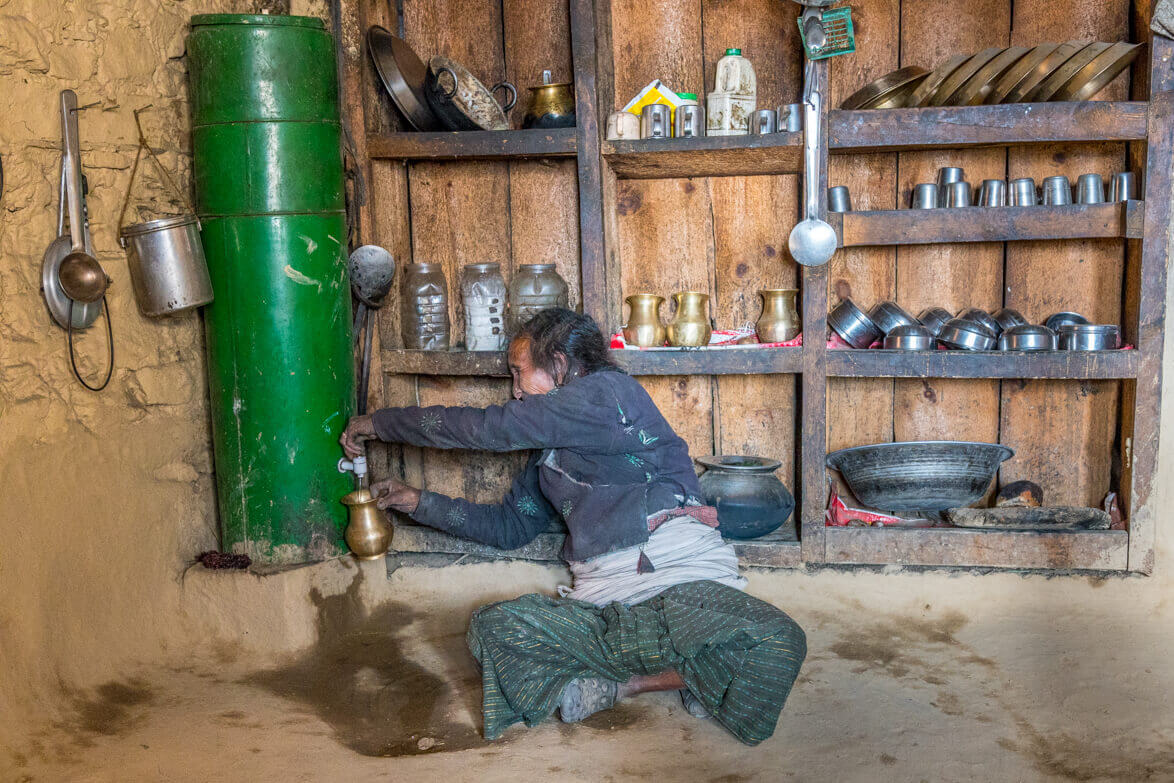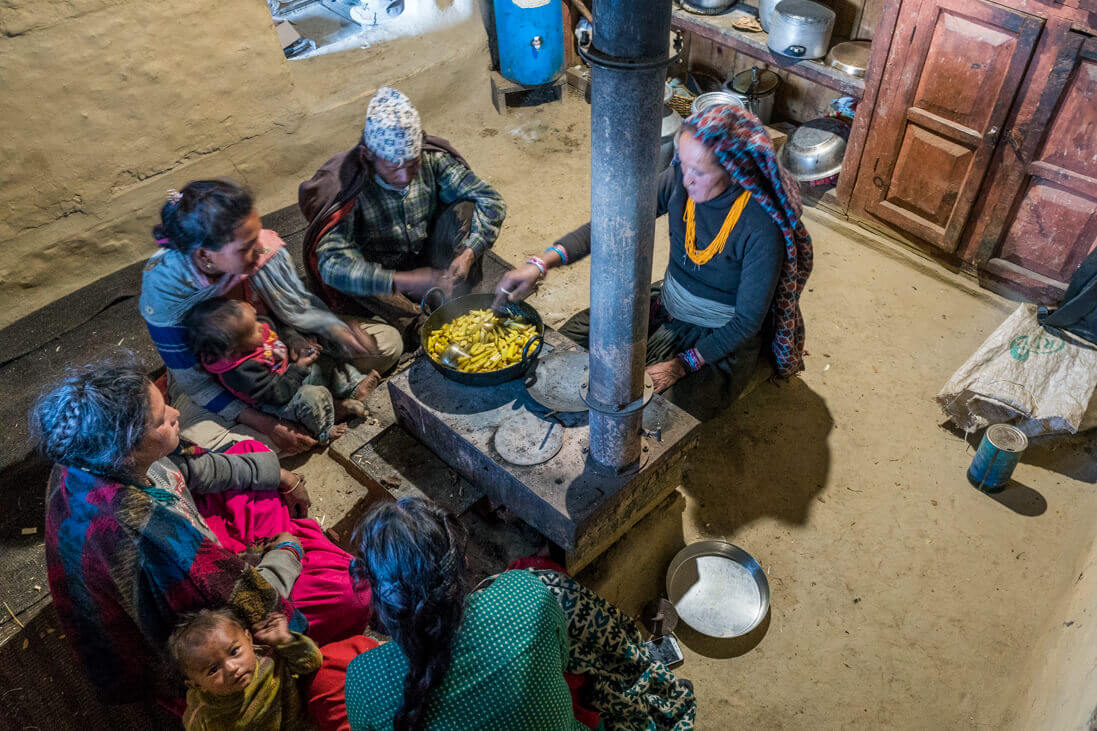Rural Integrated Development Service-Nepal (RIDS-Nepal) is a Social Non Government Organisation (NGO). It was registered in the calendar year 2005 (2062) with the Government in Lalitpur, in the Lalitpur District Office and the Social Welfare Council of Nepal. RIDS-Nepal is a NON-PROFIT body and the majority of its long-term Holistic Community Development (HCD) projects and field based research projects are financed by the donations from individuals, charities, communities and INGOs.
The implementation of the “Family of 4” eliminates the most notable causes of health problems in high-altitude villages of Nepal by improving sanitary conditions, minimising indoor smoke pollution through open fires, and by providing clean drinking water. In addition, a much more efficient use of energy is achieved for daily needs, an example of which can be seen in the lesser amounts of firewood that need to be collected per day. This saving of time as well as other benefits such as improved indoor lighting allow for an increase in everyday productivity and educational opportunities. Addressing these basic, multi-sector needs bring long-term synergistic benefits, closing a positive feedback loop which continues to drive forward the development of the community altogether.
Pit Latrines
The program improves the general heath and sanitation the people, especially the children. Diseases such as Diarrhoea, Worms and Hepatitis are uncontrolled in these villages.
Through the RIDS-Nepal Non Formal Education (NFE) literacy classes, RIDS-Nepal began in 1998 to deal with topics such as hygiene, cleanliness, the use of toilets, etc. Through this gradual awareness raising, people began to see the need for toilets and the steps they needed to make to take some kind of action.
There is still lots to be done, the awareness and understanding about the need to build and use a Pit Latrine is growing. RIDS-Nepal has evaluated the Pit Latrines built so far, and has come up with an improved Pit Latrine system. With the addition of an HDP pipe over the pit hole behind the Pit Latrine, with a fly screen on top, and inside the Pit Latrine a "sliding" board , the amount of flies can be drastically reduced. Also the smell, which was the main hindrances why mainly women did not use the Pit Latrines more frequently, is reduced.

$200 Donation

$300 Donation
Drinking Water
Water is a basic necessity. Springs provide pure water, but water is not usually taken directly from the spring, nor is the spring protected from pollution by humans and animals. People often take their daily drinking water from open sources like rivers and irrigation canals, but unfortunately people also use the rivers for other less hygienic practices. The dead, whether people or animals, are cremated beside rivers, and beside running water is a favourite place to defecate, because there is plenty of water nearby to clean oneself with. This means that most local people use unclean, and often thoroughly bacteria infested water as their daily drinking water.
In every village drinking water system project the local people and RIDS-Nepal share to equal parts the overall costs. Often RIDS-Nepal comes up for the planning; materials, like pipes and cement; it's transport by air; etc. The local community participates equally in their 50% through carrying the materials from the airport to their village (usually about a day's walk.
We are aiming to install Slow Sand Water Filters (SSWF) in each household so that the family can get clean drinking water that ensures better health.
Smokeless Stove
The smokeless metal stove (SMS) developed by RIDS-Nepal protects people's health in a two step process. The combustion process is efficient thereby reducing firewood consumption by 40-50%. The SMS is fitted with a chimney to remove the smoke from the room thereby improving g indoor air quality. removes the smoke out of the room through a chimney. The SMS has three burners and a 9 litre stainless steel water tank. The burners allows people to cook 'Daal Bhat' and vegetables all at the same time. The slit in the top heating plate enables the people to bake the traditional local flat-bread "roti" without opening the main fire door. The water tank attached to the side of the SMS provides clean hot water for drinking and washing.
The vision is to continue in partnership with the local communities to implement the SMS program as one of the four important pillars of the "Family of 4" holistic community development programs. RIDS-Nepal will continue to strive to enable more families to purchase a subsidised SMS and improve their indoor living conditions. This is an important part RIDS Nepal plays in improving and maintaining the "Gift of Good Health" for the people we live and work with. You too can have a part in one, two or more families' lives.

$400 Donation
$500 Donation
Light
If in a village the homes are more individually spread across the village, often the single solar PV home system is the best approach. Thus RIDS-Nepal has developed a further approach to the already established two concepts of the 2-axis tracking and the cluster system approach, the Solar Home System or SHS. Thus, since 2006 in suitable villages, where people think that SHS are the most appropriate solution for basic indoor lighting systems, SHSs have been installed in Humla. Each household owner is responsible for his or her own system. Frequently, we have observed that a healthy competition arises due to each owner's pride for their single solar home system. That increases the likeliness that more care and maintenance takes place, increasing the solar home system's reliability and life expectancy.
